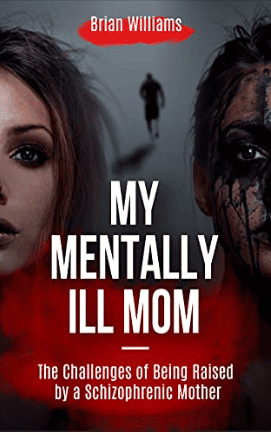Is Postpartum Depression Hereditary? | Exploring the Genetic Factors and Risk Factors
Is postpartum depression hereditary? This question looms large for many women anxious about having children, especially those whose mothers suffered from it.
Postpartum depression is a mental illness affecting approximately 15% of women post-birth, validating these concerns. Our article delves into the hereditary aspects of this condition to uncover what's true about these fears.
What's Postpartum Depression?
If a mother has postpartum depression, she feels unhappy once giving birth, generally in her first six weeks. Sleeplessness is one sign of postpartum depression. Postpartum depression is different from perinatal depression.
Some new mothers don't mind it as they know they aren't ready to sleep when they have a baby. But if the mother isn't sleeping even when the baby is, it indicates depression.
Additional signs are being unable to focus on regular tasks, always stressing, losing appetite, etc. If you think you are suffering from these signs, if it's you or they just had a baby, you should see a doctor quickly.
Note: If you're a husband and you think your wife has postpartum depression, we suggest reading How to Help Wife With Postpartum Depression.

What Leads To Postpartum Depression?
Some women are anxious about having kids since they are terrified of developing postpartum depression. Several risk factors result in developing PPD in women. Possible causes are the mother's medical record, her genes, and additional mental aspects, physical and environmental factors.
- Physical Reasons
Many believe that significant hormone changes after and during childbirth cause psychiatric conditions like postpartum depression. When estrogen and progesterone levels decline, the body's hormones transform swiftly[1]. This rapid alteration in the hormones can have psychological impacts.
But many women who aren't sad have a similar decrease in hormones and estrogen levels in women with PPD[2]. Poor sleep can have a significant role in creating postpartum depression[3].
After giving birth, women typically lack proper rest since they have to care for their newborns. Little sleep can significantly affect how a woman works, thinks, and manages things. Lacking enough and sound sleep, women could show depressive symptoms.
- Mental Reasons
Shifts in hormones and not having proper rest aren't the only risk factors that develop PPD tend to occur.
Certain emotional circumstances include having difficulty giving birth or being anxious about being a new mom. PPD may be brought on by difficult times like quitting a job or a loved one's death.
Typical Symptoms Of Postpartum Depression
Identifying symptoms of postpartum depression is vital to receiving the support you require as quickly as possible. Postpartum depression can have tiny to severe depressive symptoms, like:
- Difficulties connecting with the baby
- Isolation or separating from society
- Constant crying
- Stress or anxiety attacks
- Plans to injure yourself or your baby
- Suicidal thoughts
- Feeling pointless, sorry, or regretful
- Significant shifts in appetite
- Extreme changes in sleep routines
- Irritation and hostility
- Bad focusing
Remember that you can get support and aren't alone when you become sad after giving birth.

Is Postpartum Depression Hereditary?
In general, there are various types of proof about if depression is brought on by genes or not. Many research studies indicate that those with certain psychiatric genetics could find themselves in places or circumstances where they are more inclined to get a depressed mood[4].
Additional research suggests that certain kinds of anxiety can be passed down from parent to child, but not depression[5]. But experts have discovered a gene that appears to be associated with depression[6].
Experts have found that about 40% of individuals with depression have a genetic link to their illness, whereas 60% of individuals with depression are sick due to things in their environment[7].
In reality, if a person has a parent or child with major depression, they are between two and three times more likely to get it themselves[6].
So, depression can be seen as a condition that runs in the family, yet not always. Still, it does not show whether or not it's true for postpartum depression in particular.
Is There A Genetic Connection To Depression?
It is claimed that when one examines the vast array of causes that could lead to postpartum depression, it is remarkable that the amount of women suffering from it is as tiny as it is.
The claim is based on the notion that many factors can trigger postpartum depression. A line of thinking suggests that this can be attributed to the idea that hereditary factors indeed cause certain women to have a lesser likelihood of getting this awful condition.
Even though family members are linked to major depressive disorder, this is not the case for postpartum depression. A thorough examination of genetic studies released on related subjects attempted to piece together the data at hand to conclude.
On the other hand, the outcomes of that research study showed insufficient proof to support the theory that one specific gene is associated with postpartum depression.
Are There Any Risks Associated With Postpartum Depression?
During a brief period after delivery, women are prone to feel signs of postpartum depression. Women who are mindful of whether or not they've got a family history of postpartum depression have an edge when it comes to planning for the time after the delivery of their child.
There is an increased likelihood that you will also be suffering from postpartum depression if your mother, your sister, your aunt, your grandmother, your cousin, or any additional member of your previous history reports having postpartum depression and if they all reveal similar tales about their experiences with the disorder [8].
If you have a history of serious psychiatric disorders like bipolar disorder, you could also develop postpartum psychosis[9]. Even if no other woman in your family has gone through postpartum depression, this does not guarantee that you will not suffer from it after giving birth.
Genes are not the only factor responsible for depression; environmental risk factors additionally have a role in its growth[10].
As an example, having a stressful birth situation may boost the likelihood of getting postpartum depression[11]. It is essential to be mindful of early warning signs and risk factors to get assistance as quickly as possible. These are some of the greater risk factors:
- Presence of postpartum depression in the family
- A record of depression, of any sort, in your personal life
- Stressful life events that took place during the span of the pregnancy
- Difficulties related to breast-feeding
- A pregnancy that was not planned.
- An infant born with an assortment of medical problems
- Difficulties in one's relationships with one's significant other
- Poor support system
- Financial difficulties
Managing Postpartum Depression
Your doctor will examine postpartum depression to obtain data on the signs as well as any additional mental health data, such as your medical past.
Upon evaluating the likely level of PPD you could have, your healthcare professional will review the many treatment choices open to you.
Psychotherapy, that can also be referred to as "talk therapy," is one of the therapies that are usually suggested for postpartum depression[12]. Only two kinds of therapy are currently accessible for the treatment of PPD: cognitive behavioral therapy (CBT) and interpersonal therapy.
To further assist you with handling depression and anxiety symptoms, your medical professional can suggest antidepressants for you to take[13]. Several of these medicines can be used without danger while breastfeeding. Brenaxolone is a further psychological medicine that has been particularly authorized to manage PPD[14].
In addition to getting treatment with therapy and medication, many women who have trouble with mood disorders additionally discover comfort by participating in support groups.
Bigger associations like Postpartum Support International additionally offer women who could need an option for remote participation with the ability to engage in online support groups. Additionally, you can also help your wife with postpartum depression.
Women in emotional support groups receive help for their mental health from mothers like them who are coping with postpartum depression (PPD)[15].
Conclusion
Most studies concluded that hormonal changes after pregnancy and childbirth create postpartum depression. We still don't know what causes postpartum depression. But it's primarily due to genes.
Depression can cause sleep problems, anxiety, indecision, anger, trouble concentrating, and weight loss. Researchers investigated and found a gene that is linked to major depressive disorder. So, genetics explain depression. Postpartum depression is peculiar.
Certain genetic studies show that postpartum depression can be triggered by things in the environment or by psychological issues from the past. There may be a link between genes and postpartum depression.
- Hormonal Changes After Pregnancy- Forever Fit Mama
- Postpartum Depression - National Library Of Medicine
- Association Between Sleep Quality And Postpartum Depression - PMC
- The Etiology Of Depression -National Library Of Medicine
- Anxiety And Depression In Children: Get The Facts - CDC
- Major Depression And Genetics - Standford Medicine
- Biological, Psychological, And Social Determinants of Depression - PMC
- Postpartum Depression: A Systematic Review Of The Genetics Involved - PMC
- Postpartum Psychosis - National Health Service
- Genetic And Epigenetic Factors Associated With Depression - PMC
- The Effect Of Stressful Life Events On Postpartum Depression - PMC
- Postpartum Depression - Mayo Clinic
- Postpartum Depression - Science Direct
- FDA Approves First Treatment For Postpartum Depression - FDA
- Support Group Options for Postpartum Depression - Postpartum Depression








